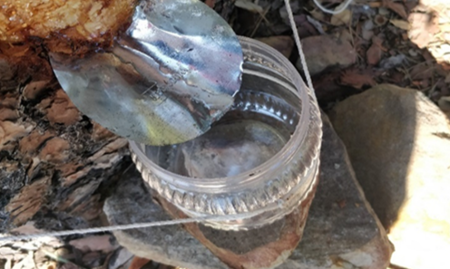
Objective:
The exploitation of pine forests in Tunisia which covered up to 50% of the total forest area could contribute and generate additional income sources for forest populations. Until now, the resin extraction knowledge was very limited and outdated. In the present study, the assessment of the biological performance of the resin was the main objective in order to detect the antioxidant activity of three pine species in the Tunisian forest.
Context:
The group of Tunisian pine represents a major forest capital around the Mediterranean. The resin of this plant was chosen on the basis of its use in local traditional medicine (Hatim et al., 2019). Therefore, the present investigation was focused on the study of the resin extraction process from different species of pine in order to get some supplementary data related to the composition and biological activity.
Contacts:
Hmaidi Bilel, bilelhmaidi04@gmail.com, http://www.isptabarka.agrinet.tn/
Ben Salem Emna, emnabensalemmoodle17@gmail.com, http://www.isptabarka.agrinet.tn/
Mokhtar Baraket, moktar.baraket@gmail.com, http://www.inrgref.agrinet.tn/
Aloui Foued, foued.aloui@gmail.com, http://www.isptabarka.agrinet.tn/
Further information:
Fenglin, H.; Ruili, L.; Bao, H.; Liang, M. Free radical scavenging activity of extracts prepared from fresh leaves of selected Chinese medicinal plants. Fitoterapia 2004, 75, 14-23.